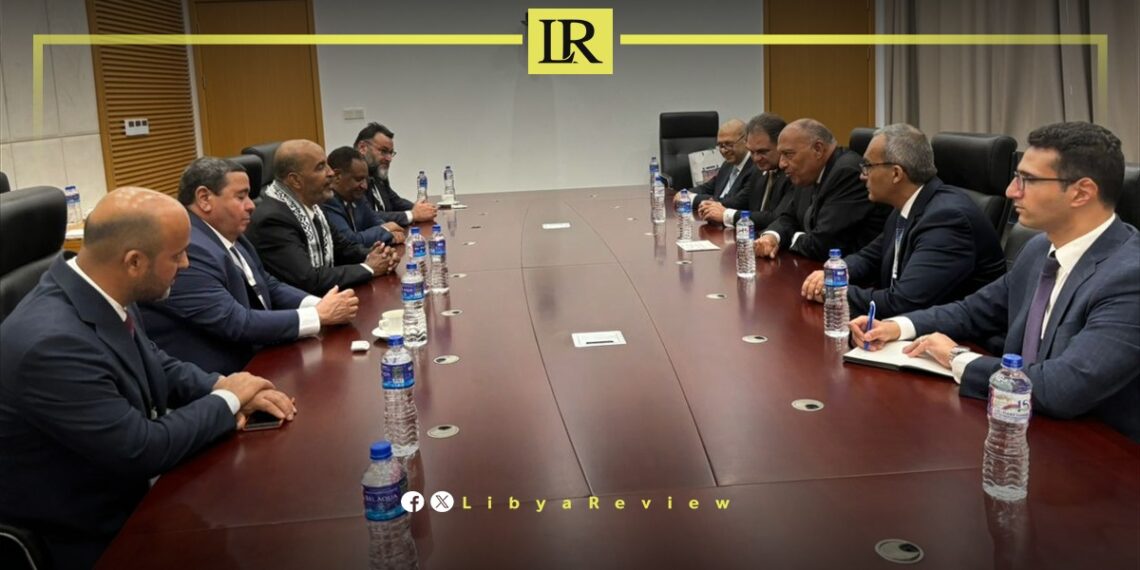On Saturday, Egypt’s Foreign Minister Sameh Shoukry met with Musa Al-Koni, the Deputy Head of Libya’s Presidential Council, during the Organization of Islamic Cooperation (OIC) summit in The Gambia.
Shoukry expressed Egypt’s commitment to supporting the Libyan Presidential Council and maintaining unity.
Egypt reiterated its continuous support for the Libyan political process and efforts to reconcile viewpoints.
Shoukry highlighted the importance of Libyan institutions and dialogue facilitated by the Arab League between the Libyan Parliament and the High Council of State (HCS). The aim is to reach an agreement on simultaneous presidential and parliamentary elections under a unified government.
The meeting addressed the need to resolve militias and withdraw foreign forces from Libya, based on relevant Security Council resolutions and the outcomes of the Paris and Berlin processes.
Shoukry and Al-Koni agreed to continue joint coordination and high-level visits to promote stability in Libya.
Al-Koni praised Egypt’s supportive role and its commitment to the stability of Libya, recognising Cairo’s significant contribution to resolving the Libyan crisis and its dedication to providing comprehensive support to Libya.
In another context, the Vice-President of the Egyptian Workers’ Union, Magdy El-Badawy, revealed details of Libya’s plan to import two million workers from Egypt in 2024.
El-Badawy stated in a television interview on Wednesday that the Libyan decision is not impulsive, noting that after political stability in Libya two years ago, the country aimed to embark on reconstruction. Initially, the focus was on recruiting Egyptian workers due to their expertise in reconstruction.
He further emphasised that coordination had been established between Egyptian and Libyan officials, and an electronic linkage between the two countries had been established to facilitate the recruitment of Egyptian workers. The recruitment process would be conducted through government rather than individuals, and Egyptian companies would play a role in organizing and sending the workforce to Libya.


